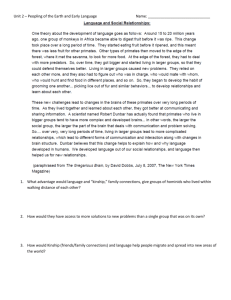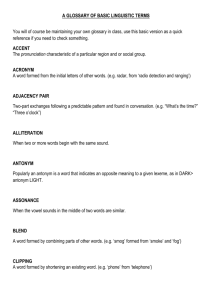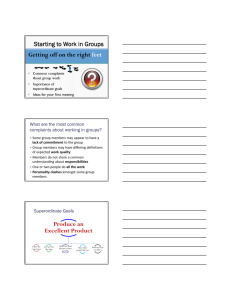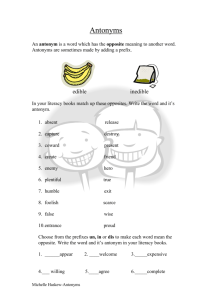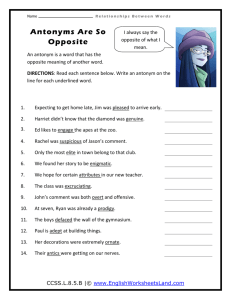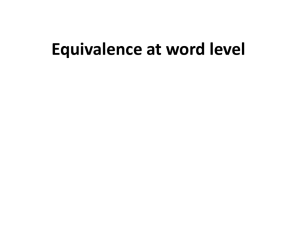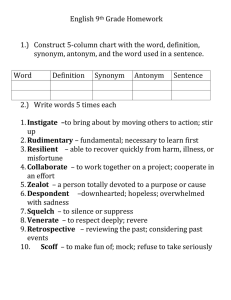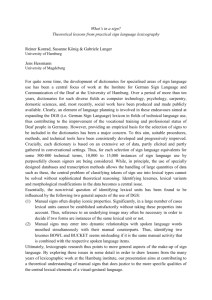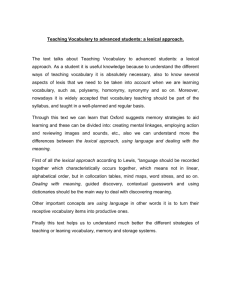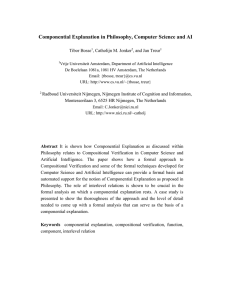ING218 Lecture 5 Lexical Relations 11/10/2012
advertisement
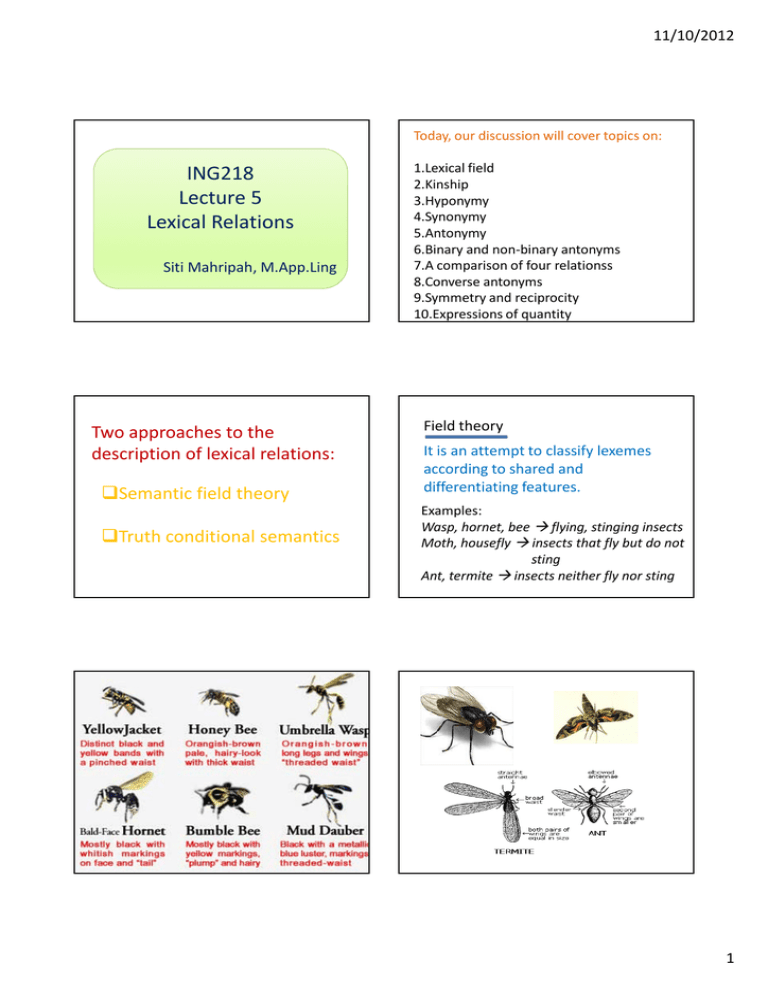
11/10/2012 Today, our discussion will cover topics on: ING218 Lecture 5 Lexical Relations Siti Mahripah, M.App.Ling Two approaches to the description of lexical relations: Semantic field theory Truth conditional semantics 1.Lexical field 2.Kinship 3.Hyponymy 4.Synonymy 5.Antonymy 6.Binary and non-binary antonyms 7.A comparison of four relationss 8.Converse antonyms 9.Symmetry and reciprocity 10.Expressions of quantity Field theory It is an attempt to classify lexemes according to shared and differentiating features. Examples: Wasp, hornet, bee flying, stinging insects Moth, housefly insects that fly but do not sting Ant, termite insects neither fly nor sting 1 11/10/2012 Truth conditional semantics It studies lexical relations by comparing predications that can be made about the same referring expression. Its task is to account for the meaning relations between different expressions in a language. Three such relations are entailment, paraphrase, and contradiction. Componential analysis A way to determine semantic features using square brackets as to indicate members of a certain set from one another. Example: [male/female] [adult/child] Advantage of componential analysis It reflects the system through which lexemes have their respective senses. To tell what something is requires us to tell what it is not, what it contrasts with and what features make the contrast possible. Possible disadvantage of componential analysis Kinship Kinship is universal since all humans are related to other humans through blood ties and through marriage. A relationship is a kind of predicate. We may find ourselves undully concerned with classification of the phenomena represented in language, forgetting that our concern is language itself. Kinship Hyponym Sentences such as Harold is Alice’s father, and Rose is Jerry’s sister. have a propositional content that we represent this way. Theme Harold Rose Predicate father of sister of Associate Alice Jerry A kind of relation which exists when a word have a referent in which it is included in the referent of a more general word, called superordinate. Example: Rose is a hyponym of flower, and flower is a superordinate of rose 2 11/10/2012 Co-Hyponym Synonym Two or more lexemes that have the same superordinate. Example: Rose, jasmine, and lavender are co-hyponyms of the same superordinate, flower. Antonym Example: Binary antonym No middle ground Examples: Open/shut; Dead/alive Symmetry and reciprocity Antonym Non-Binary antonym Having various intermediate terms Examples: Young/old, wide/narrow Consider the following sentences: More detail examples, please go and read your reference book. 3 11/10/2012 The end and Thank you 4
